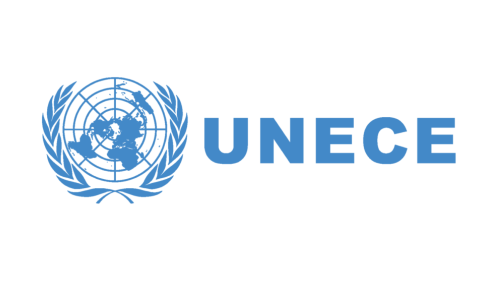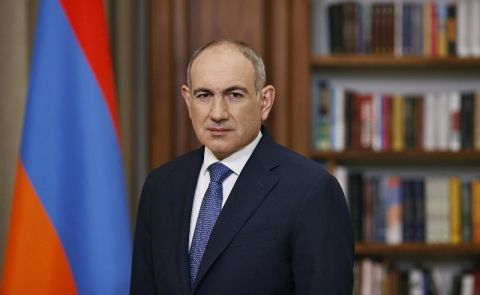
Political crisis in Armenia: Pashinyan unveils priorities in regard to Nagorno-Karabakh; government denies existence of “secret documents” with Azerbaijan
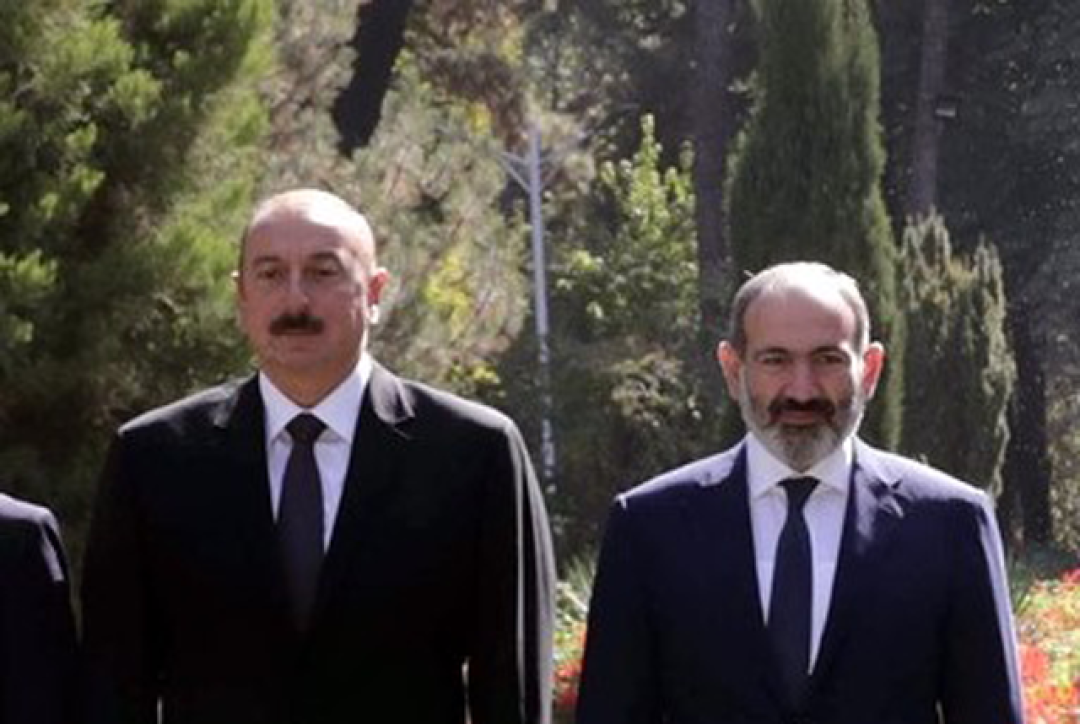
On 8 January, Armenia’s Prime Minister Nikol Pashinyan unveiled the main priorities of the Armenian side in further implementation of the 9 November trilateral statement.
In his words, the first priority is the full implementation of the 8th point of the statement, which calls for a complete exchange of prisoners of war, hostages and other detainees, as well as the bodies of the killed soldiers and civilians. “Extensive search and rescue operations in the war zone are also important for us,” Pashinyan wrote on his Facebook page.
The second priority is the unblocking of the entire economic and transport infrastructure in the region, which means both transportation of goods and transport communication for Armenia through the territory of Azerbaijan to Russia and the Islamic Republic of Iran. This also includes cargo transportation and transport communication for Azerbaijan through the territory of Armenia to its exclave Nakhichevan.
“I would like to again draw attention to the fact that there is no mention of “corridor” in the statement either in relation to Meghri or any other territory of Armenia. The choice of communication routes from Armenia to Russia and from Azerbaijan to Nakhichevan is a separate topic for discussion. An important condition for the effectiveness of this point is the full exchange of prisoners of war, hostages, other detained persons and the bodies of the dead, as well as an enhanced search for the missing," Pashinyan added.
Pashinyan’s spokesperson Mane Gevorgyan commented on President Ilham Aliyev’s statement that in the future, the “Nakhichevan Corridor” would certainly be launched in the context of the 9 November statement. She said Armenia is certainly interested in the possibility of transporting goods through the territory of Azerbaijan to the Russian Federation and the Islamic Republic of Iran and back. "We are interested in the possibility of transporting Armenian goods in the direction of the Russian Federation by road and rail, and in the direction of Iran, especially by rail. In this context, naturally, Armenia is ready to provide communications between part of Eastern Azerbaijan and the Nakhichevan Autonomous Republic," the press secretary said.
Nevertheless, Gevorgyan pointed out that a full discussion of these issues is difficult without the full implementation of the 8th point of the joint statement of 9 November, which provides for the exchange of prisoners, hostages, other detainees and the bodies of the killed soldiers. She recalled that there are still Armenian prisoners in Baku, including numerous testimonies of cruel and humiliating treatment of them. There is also evidence of the executions of prisoners, which should be thoroughly investigated, including by international organisations. “At the same time, the policy of hatred towards Armenian pursued in recent decades continues in Azerbaijan. To establish stability and peace in the region, it is necessary to put an end to provocative actions and statements,” she stressed.
The country’s Ombudsman Arman Tatoyan was also vocal regarding Aliyev’s speech from 7 January, saying that he used statements and emphases which are part of the anti-Armenian policy in Azerbaijan and the organised propaganda of hostility towards the Armenian people. In particular, the speech used open threats against Armenia and the Armenian society, expressions threatening the entire Armenian people and insulting their dignity. The speech also referred to the disruption of humanitarian aid to Karabakh. Tatoyan also condemned the actions of Azerbaijan’s military in the Syunik region.
Meanwhile, a large group of Armenian citizens gathered in front of the country’s justice ministry to find out what document would be signed during the meeting of the Armenian, Azerbaijani and Russian heads of state that might be held in Russia on 11 January and what provisions are stated in the document. The country’s Minister of Justice Rustam Badasyan denied the rumours of the opposition mass media that there are “secret agreements” with Azerbaijan, urging citizens not to trust Telegram channels. “I reaffirm that the Ministry of Justice has no treaty, and that the media’s information is disinformation. There is a new style of spreading disinformation through unknown Telegram channels to which the mass media refer to, and this sparks emotions and concern in the public. I call on everyone to not believe this disinformation and not trust the news spread on those channels,” Badasyan said. He also said that there is no international treaty in the ministry. “If there was an international treaty, as a member of government I would have been aware of it. Such issue has not been discussed in the government, I have no information about the existence of such a treaty,” Badasyan added.
The Armenian informative website 168.am reported that the country’s Ministry of Foreign Affairs updated on 17 December the list of countries with which Armenia has a visa-free regime according to bilateral and multilateral agreements and that Azerbaijan was amongst those countries. This prompted the reaction from the spokesperson of Armenia’s MFA spokesperson Anna Naghdalyan. “The Bishkek Accord on visa-free travel of citizens of CIS countries, signed in Bishkek on 9 October 1992, prescribes the visa-free travel of citizens to their respective territories, an opportunity to regulate those procedures through domestic laws, as well as the jurisdiction to apply restrictions on movement and establish other internal regulations. Later, the visa-free regime has been revised or replaced with bilateral agreements with several CIS countries. The legal norms of the aforementioned agreement de facto aren’t in effect for citizens of the Republic of Armenia and Azerbaijan, and in special cases, the entry of citizens of both countries into the Republic of Armenia or Azerbaijan is actually based on special permission, under the direct supervision of competent authorities,” she stated.
The abovementioned leak also prompted an official reaction from Baku. “First of all, it is important to establish diplomatic relations between the states in order to talk about the visits of the citizens between the Republic of Azerbaijan and the Republic of Armenia. We would like to note that any international agreement on regulating movement between the two countries has not been signed. Therefore, in the current stage, it is baseless to talk about visa exemption on the basis of the principle of reciprocity,” stated the spokesperson of Azerbaijan’s MFA Leyla Abdullayeva.
See Also

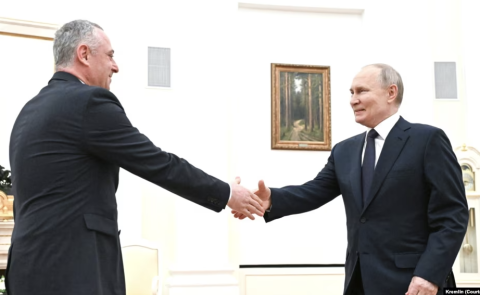
Abkhazia’s Separatist Leader Discusses Relations with Russia

CoE Commissioner Addresses the Georgian Government
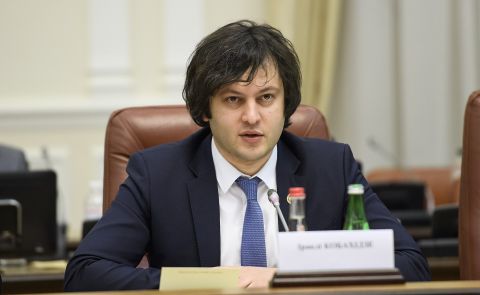
Kobakhidze Announces Plans to File Lawsuit to Ban the "Collective National Movement"
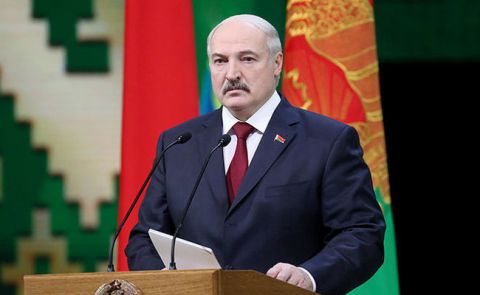
Belarus Affirms It Has Never Been an Adversary to Georgia
